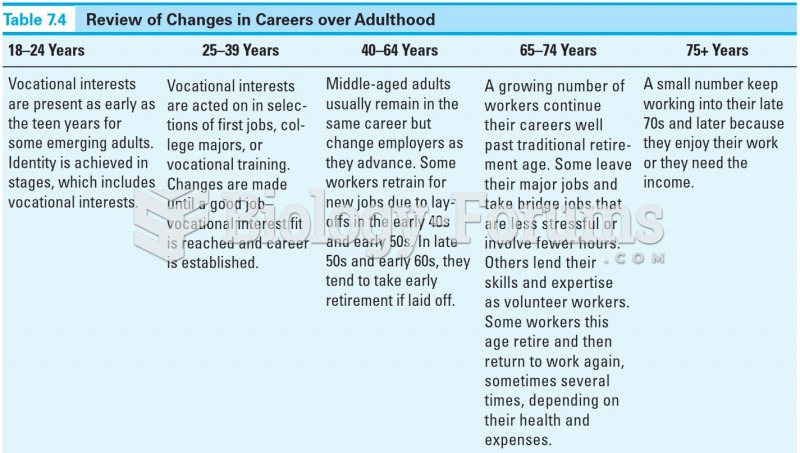|
|
|
All adults should have their cholesterol levels checked once every 5 years. During 2009–2010, 69.4% of Americans age 20 and older reported having their cholesterol checked within the last five years.
Blastomycosis is often misdiagnosed, resulting in tragic outcomes. It is caused by a fungus living in moist soil, in wooded areas of the United States and Canada. If inhaled, the fungus can cause mild breathing problems that may worsen and cause serious illness and even death.
Stevens-Johnson syndrome and Toxic Epidermal Necrolysis syndrome are life-threatening reactions that can result in death. Complications include permanent blindness, dry-eye syndrome, lung damage, photophobia, asthma, chronic obstructive pulmonary disease, permanent loss of nail beds, scarring of mucous membranes, arthritis, and chronic fatigue syndrome. Many patients' pores scar shut, causing them to retain heat.
Studies show that systolic blood pressure can be significantly lowered by taking statins. In fact, the higher the patient's baseline blood pressure, the greater the effect of statins on his or her blood pressure.
Everyone has one nostril that is larger than the other.
 Acromegaly. Acromegaly is a metabolic disorder in which excessive amounts of growth hormone are secr
Acromegaly. Acromegaly is a metabolic disorder in which excessive amounts of growth hormone are secr
 On May 15, 1916, after deliberating for one hour, an all-white jury in Waco, Texas, found seventeen-
On May 15, 1916, after deliberating for one hour, an all-white jury in Waco, Texas, found seventeen-





